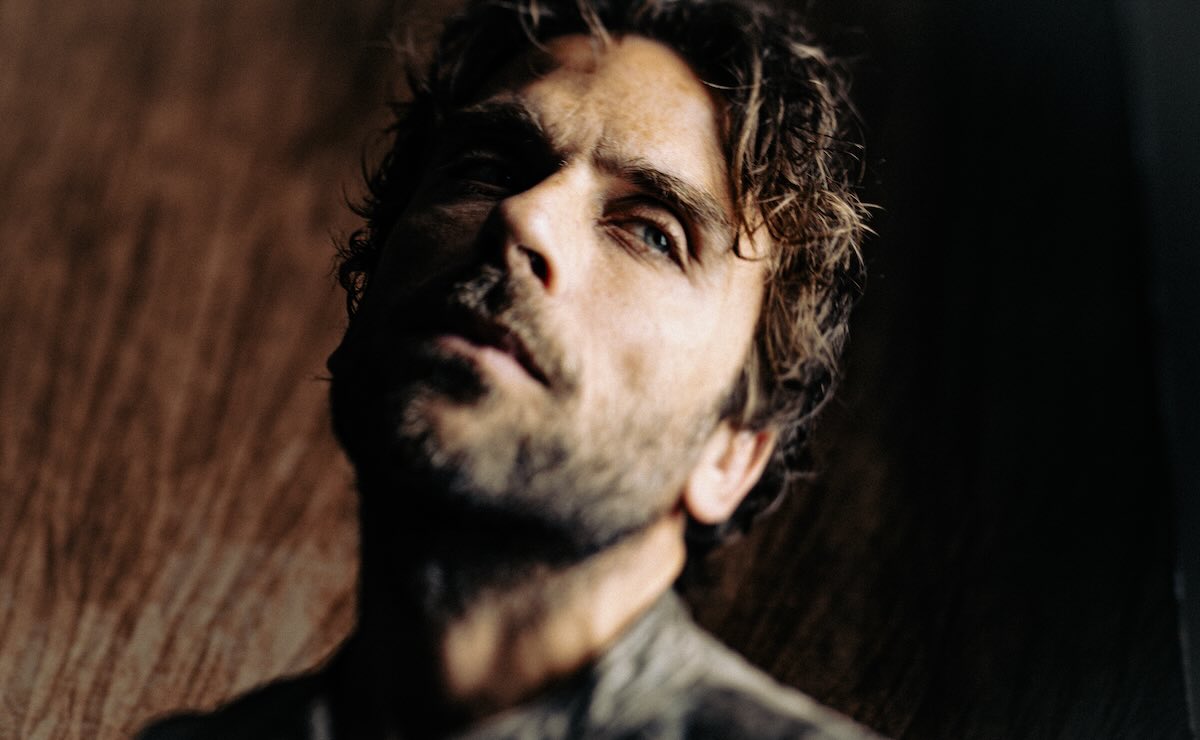
Sicilian singer-songwriter Fabrizio Cammarata has long been celebrated for his ability to weave together worlds, whether that’s musically, linguistically, or emotionally. His songs feel like messages from solitude, carried across languages and borders in search of connection. With his new album Insularities, Cammarata delivers what may be his most intimate and expansive work yet: a collection of songs that explore what it means to be an island.
At once meditative and raw, Insularities traces the delicate tension between distance and belonging, themes that pulse through tracks such as “Água E Sal” and “The Woman In Me.” Though strikingly different in tone, the two tracks mirror one another: one facing outward toward love and loss, the other inward toward self-reckoning. Sung across Italian, Portuguese, and the unspoken language of feeling, they form a dialogue between grief and renewal, reminding us that even isolation can hold the promise of connection.
In conversation with Variance, Cammarata reflects on the experiences that shaped these songs, from a fleeting island encounter and a friend’s passing to the quiet revelations of recording with Berlin’s Cantus Domus choir. He also opens up about the spiritual core of Insularities, the role of language as vibration, and the beauty of finding grace in the act of falling.
Your new release pairs two very different songs, “Água E Sal” and “The Woman In Me.” Why did you choose to present them together, and how do you see them speaking to each other?
They’re like two mirrors facing each other — one reflects the outer world, the other the inner one. “Água E Sal” deals with love and loss, the kind of human connection that slips through your fingers like water. “The Woman In Me” turns that gaze inward: it’s about reconciling with all the voices that live inside us. Together they form a dialogue between grief and self-discovery, between the sea outside and the sea within.
“Água E Sal” was sparked by a fleeting encounter and a personal loss. How did those two experiences intertwine for you, and what was it like turning that contradiction into music?
I was carrying a heavy silence after losing a dear friend — a silence too dense to scream, too deep to explain. Then, on a small island off Sicily, I met Marina. She was full of light and sadness, and for a single night, we shared that fragile joy of people who know the line between light and fall. That contradiction — between death and desire, mourning and life — became “Água E Sal.” Writing it was like finding balance on a wave: you can’t stop it from breaking, but you can learn to move with it.
You sing in both Italian and Portuguese on “Água E Sal.” What does language unlock for you creatively, and how do you decide which tongue a song should take?
Language, to me, is vibration. I don’t “choose” a language; it appears with the first sound I utter. Sometimes a word feels truer in Portuguese than in Italian, because the vowel, the breath, carries the emotion better. Singing in multiple languages is my way of letting emotion find its most natural shape — not through meaning, but through sound.
The Berlin choir Cantus Domus adds such depth to “The Woman In Me.” What was it like working with them, and what did their presence bring to the track?
It was almost mystical. “The Woman In Me” is about all the inner voices that inhabit me — the mother, the father, the child, the outcast. Recording with Cantus Domus made those voices real. When they sang, it felt as if my inner family had stepped out of me and surrounded me in sound. Their voices are immense and intimate at once — like being held by a storm.
Your new album explores the idea of “insularity” — being an island geographically, emotionally, spiritually. How did that concept take shape for you, and what made it the heart of this record?
I grew up on an island, so “insularity” has always been more than a metaphor — it’s a condition of being. I started to see it as something that lives inside all of us: the distance between who we are and who we wish to be, between ourselves and others. Insularities was born from that realization — that we’re all islands, but maybe the real question is how willing we are to build bridges.
If you could capture the feeling of “Insularities" in one image or scene, what would it look like?
A person standing by the sea at dawn — light just beginning to rise, the water still cold, the world both near and unreachable. The beautiful artwork by Canadian artist Amy Friend catches it perfectly. That moment when solitude feels infinite, but also full of connection.
The tension between solitude and connection seems to run through your recent songs. Do you see that as a reflection of your own life, or more of a universal human condition?
Both. I think solitude and connection are the two tides that shape every human soul. Personally, I’ve always oscillated between the two — between the urge to retreat and the longing to belong. But I believe that in the tension between them lies the truth of who we are.
You often write from such an introspective place — when you’re not making music, what brings you joy in a simpler, everyday way?
Cooking. The sea. Surfing. Reading. Sharing silence with friends. These are the small rituals that remind me that joy doesn’t need to shout. It’s often hidden in the quietest gestures.
You’ll be bringing “Insularities" on tour this autumn, with a special London next Spring. What can audiences expect from these live performances?
These concerts will feel like a journey inward — but one that constantly plays with the same inner oscillation we were talking about earlier. I’ll perform the songs from “Insularities” in their rawest form — just voice, guitar, and the silence in between.
But there will also be moments when the sound expands, when everything erupts and I give it all away — almost like in a punk rock gig — because that’s part of me too.
And then, again, there will be moments of communal release, where everyone can sing, breathe, and maybe cry together.
The London show on April 11th, 2026, at the West Hampstead Arts Club, will be a particularly special one — a night to celebrate, to reflect, and to reconnect through music.












